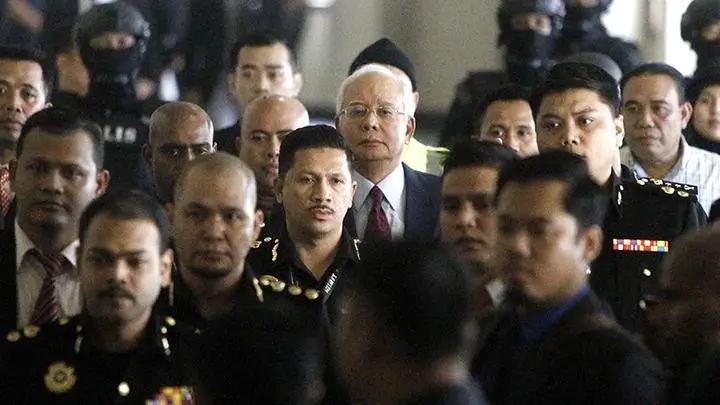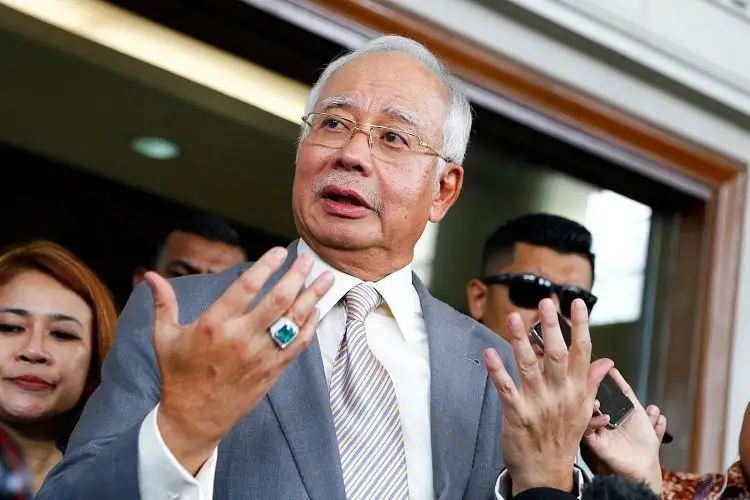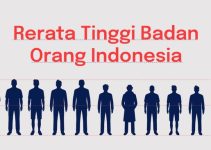Contents
- 1 Key facts about Najib Razak’s pardon appeal
- 2 The legal process of a pardon appeal
- 3 Public reaction to Najib Razak’s pardon appeal
- 4 Analysis of the public’s response
- 5 Controversies surrounding Najib Razak’s pardon appeal
- 6 Comparison to similar cases
- 7 Possible outcomes of the pardon appeal
- 8 Conclusion and future implications
- 9 Author
Najib Razak, the former prime minister of Malaysia, has been at the center of a high-profile corruption case involving the state investment fund, 1MDB. The scandal, which unfolded over several years, rocked the nation and tarnished Malaysia’s reputation on the global stage.
The 1MDB scandal came to light in 2015 when it was revealed that billions of dollars were missing from the fund. Investigations soon pointed to Najib Razak’s involvement, with allegations of embezzlement, money laundering, and abuse of power. The funds were alleged to have been used to finance luxury real estate, expensive artwork, and even the production of Hollywood films.
In 2020, Najib Razak was found guilty on multiple counts of corruption, marking a significant milestone in the country’s fight against corruption. He was sentenced to 12 years in prison and ordered to pay hefty fines. However, he has since appealed his conviction and sought a pardon.

Key facts about Najib Razak’s pardon appeal
Najib Razak’s pardon appeal has generated intense interest both within Malaysia and abroad. One key fact surrounding this issue is that a pardon would effectively erase his conviction, allowing him to re-enter the political arena and potentially regain his influence.
Another important fact is that the decision to grant a pardon lies in the hands of the Yang di-Pertuan Agong, the constitutional monarch of Malaysia. The monarch has the power to grant pardons, but the process is subject to certain legal requirements and considerations.
It is worth noting that Najib Razak’s pardon appeal is not without controversy. Critics argue that granting him a pardon would undermine the rule of law and send the wrong message about the fight against corruption. They believe that the conviction should stand as a deterrent and a symbol of the country’s commitment to upholding justice.
The legal process of a pardon appeal
The legal process of a pardon appeal in Malaysia is outlined in the Federal Constitution. The process begins with an application for a pardon, which is then reviewed by the Attorney General’s Chambers. The Attorney General’s Chambers will examine the merits of the case and provide a recommendation to the Yang di-Pertuan Agong.
Once the recommendation is received, the Yang di-Pertuan Agong will consider the application and make a decision. The decision can be influenced by various factors, including the gravity of the offense, the character of the applicant, and the public interest. It is important to note that the decision of the Yang di-Pertuan Agong is final and cannot be challenged or appealed.
Public reaction to Najib Razak’s pardon appeal
The public reaction to Najib Razak’s pardon appeal has been highly polarized. Supporters of the former prime minister argue that he has served his country and should be given a second chance. They believe that his conviction was politically motivated and that he has been unfairly targeted.
On the other hand, there is a significant portion of the public that opposes granting Najib Razak a pardon. They argue that doing so would undermine the rule of law and set a dangerous precedent. They believe that the fight against corruption requires holding those in power accountable, regardless of their status or influence.
The reaction from civil society organizations and anti-corruption activists has been particularly strong. They have been vocal in their opposition to a pardon, emphasizing the need for justice and accountability. These groups argue that a pardon would send the wrong message and erode public trust in the country’s institutions.
Analysis of the public’s response
The mixed public reaction to Najib Razak’s pardon appeal reflects the deep divisions within Malaysian society. The case has become a symbol of the struggle between those who support the former prime minister and those who advocate for accountability and transparency.
Supporters of Najib Razak argue that he was a victim of political persecution and that his conviction was a result of a biased judicial system. They believe that his pardon would rectify this injustice and allow him to continue his work in serving the country.
On the other hand, critics of a pardon emphasize the need for the rule of law to prevail. They argue that granting Najib Razak a pardon would undermine the efforts to combat corruption and erode public trust in the justice system. They believe that the conviction should stand as a reminder that no one is above the law.

Controversies surrounding Najib Razak’s pardon appeal
Najib Razak’s pardon appeal has not been without controversies. One of the key controversies is the timing of the appeal. Critics argue that it is premature for him to seek a pardon while the legal process is ongoing. They believe that he should exhaust all legal avenues before seeking clemency.
Another controversy is the potential political implications of a pardon. Critics argue that granting Najib Razak a pardon would not only rehabilitate his image but also potentially pave the way for his return to politics. This raises concerns about the impact on Malaysia’s political landscape and the potential for a resurgence of corruption.
Additionally, there are concerns about the fairness and transparency of the pardon process. Critics argue that the decision to grant a pardon should be based on objective legal considerations rather than political influence. Any perception of impropriety could further erode public trust in the country’s institutions.
Comparison to similar cases
Najib Razak’s pardon appeal is not the first high-profile case involving a public figure seeking clemency. In the past, there have been instances where individuals convicted of corruption or other offenses have successfully obtained pardons.
One notable example is the case of Anwar Ibrahim, a prominent Malaysian politician who was convicted of corruption and sodomy in separate incidents. Anwar Ibrahim’s pardon, which was granted in 2018, sparked both praise and criticism. Supporters argued that it was a step towards justice, while critics saw it as a political move.
The bandar slot online comparison between these cases raises questions about the consistency and fairness of the pardon process. Critics argue that political considerations should not influence the decision to grant or deny a pardon and that the process should be transparent and impartial.
Possible outcomes of the pardon appeal
The outcome of Najib Razak’s pardon appeal remains uncertain. While the decision ultimately lies with the Yang di-Pertuan Agong, speculation is rife about the potential outcomes.
If a pardon is granted, Najib Razak’s conviction would be nullified, and he would be free to re-enter the political arena. This could have significant implications for Malaysia’s political landscape, with the potential for a realignment of power and the resurgence of his political influence.
On the other hand, if the pardon is denied, Najib Razak would remain convicted and face the consequences of his actions. This outcome would send a strong message about the country’s commitment to justice and accountability.
It is important to note that the decision to grant or deny a pardon is not solely based on legal considerations. Political factors, public sentiment, and the broader implications for the country’s stability and reputation also come into play .
Conclusion and future implications
The latest update on Najib Razak’s pardon appeal highlights the complex and contentious nature of the case. The public reaction has been mixed, with supporters arguing for a second chance and critics emphasizing the need for justice and accountability.
The controversies surrounding the pardon appeal raise important questions about the rule of law, the fairness of the process, and the potential political implications. The outcome of the appeal will have far-reaching consequences for Malaysia’s political landscape and its fight against corruption.
As the legal battle continues in situs slot, it is crucial to closely monitor the developments and their impact on the country. The decision of the Yang di-Pertuan Agong will shape not only Najib Razak’s future but also the trajectory of Malaysia’s efforts to combat corruption and uphold the rule of law.
Stay tuned for more updates on this intriguing case that has captivated the nation and the international community alike.
Read also: Indonesia’s 2024 Red Dates: Navigating February’s Public Holidays and Election Day



